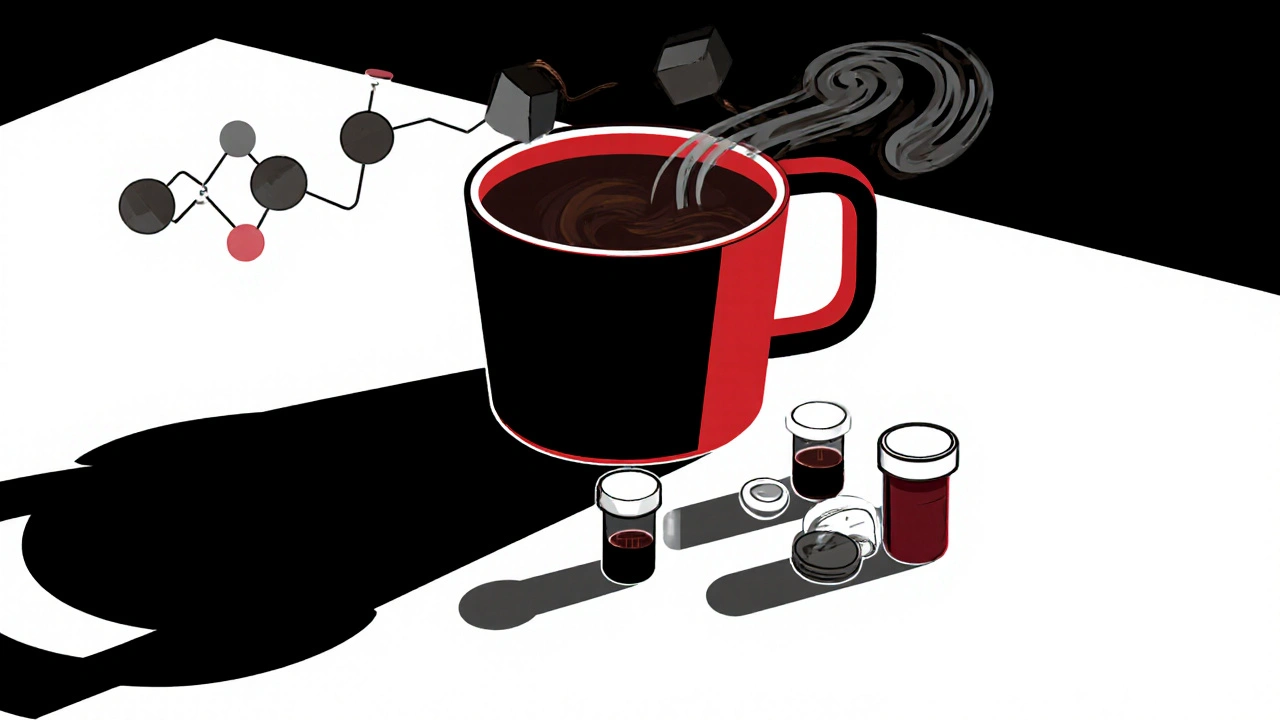Caffeine Side Effects: What You Need to Know Before Your Next Cup
When you drink coffee, energy drinks, or even tea, you’re consuming caffeine, a central nervous system stimulant found in over 60 plants and used worldwide to fight fatigue. Also known as 1,3,7-trimethylxanthine, it’s the most widely consumed psychoactive substance on the planet. But for all its benefits, caffeine isn’t harmless. Too much can trigger anxiety, disrupt sleep, spike your heart rate, or even cause headaches when you skip your usual dose.
The body builds caffeine tolerance, a reduced response to the same dose over time quickly—sometimes in just a few days. That’s why your morning cup that used to wake you up now barely does anything. And when you try to cut back, caffeine withdrawal, a recognized medical condition with symptoms like fatigue, irritability, and brain fog can hit hard. Studies show up to 50% of regular users experience withdrawal symptoms after stopping, even if they only had one cup a day. It’s not in your head—it’s your brain adjusting to the absence of a substance it’s come to rely on.
Then there’s the risk of caffeine overdose, a dangerous spike in heart rate, tremors, or even seizures from consuming too much too fast. It’s rare, but it happens—especially with energy drinks, powders, or pills. Just one teaspoon of pure caffeine powder equals 200 cups of coffee. That’s enough to kill. Most people don’t realize how easy it is to go over the safe limit, especially when mixing sources: coffee, soda, pre-workout, and chocolate all add up.
And if you’re prone to anxiety, caffeine can make it worse. It doesn’t cause anxiety disorders, but it can trigger panic attacks in sensitive people by mimicking the body’s stress response. Your heart races, your palms sweat, your thoughts spiral—and you think something’s wrong. It’s just caffeine doing its job too well.
What you’ll find in the articles below isn’t just a list of side effects. It’s a practical look at how caffeine interacts with your body, your medications, your sleep, and your mental health. You’ll see real cases, real numbers, and real advice—not guesses or hype. Whether you’re trying to cut down, manage symptoms, or just understand why you feel off after your third espresso, the posts here give you the facts without the fluff.

Caffeine and Medications: How Your Coffee Could Be Making Your Pills Less Effective
- Oct, 28 2025
- 9
Caffeine can interfere with common medications like warfarin, thyroid hormone, and antidepressants, leading to reduced effectiveness or dangerous side effects. Learn how to safely enjoy coffee while taking prescription drugs.
Categories
- Health and Medicine (62)
- Health and Wellness (57)
- Medicine (37)
- Women's Health (11)
- Mental Health (9)
- Men's Health (7)
- Beauty and Wellness (4)
- Health Information (4)
Archives
- February 2026 (8)
- January 2026 (25)
- December 2025 (28)
- November 2025 (25)
- October 2025 (27)
- September 2025 (14)
- August 2025 (3)
- July 2025 (2)
- June 2025 (2)
- May 2025 (3)
- April 2025 (4)
- March 2025 (4)
- online pharmacy
- medication safety
- dietary supplement
- health benefits
- dietary supplements
- generic drugs
- prevention
- fertility
- online pharmacy Australia
- side effects
- QT prolongation
- medication side effects
- diabetes medications
- GLP-1 agonists
- nocebo effect
- brand vs generic
- treatment
- treatment options
- benefits
- connection
